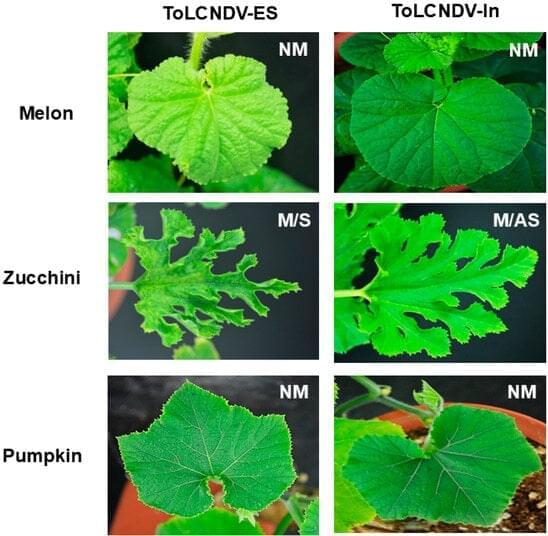Among begomovirus species, tomato leaf curl New Delhi virus (ToLCNDV) is significant and stands out as a mechanically transmissible bipartite begomovirus originating from the Old World. However, the mechanisms underlying the mechanical transmission of different ToLCNDV strains remain understudied, as their natural transmission occurs via insect vectors. In this study, we investigated the mechanical transmissibility of two ToLCNDVs, one from Italy and another from Pakistan, in host plants. Several cucurbit species were screened, and symptom differences between the two ToLCNDV clones were observed only in zucchini when subjected to rubbing inoculation. The Italian isolate (ToLCNDV-ES) induced typical disease symptoms such as leaf curling, yellow mosaic, and internode stunting, whereas a normal phenotype was observed in zucchini mechanically infected with ToLCNDV-In (Pakistani isolate).
